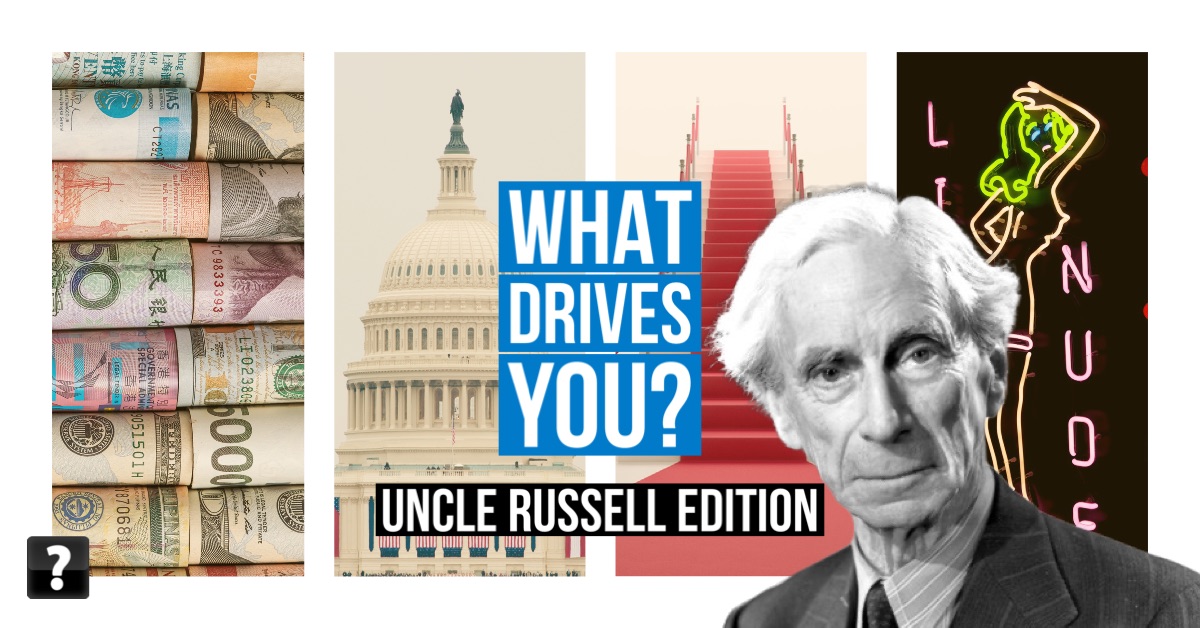A while back I posted The four drives [confusion.cc] about the connection between what a history teacher once explained to me as the four drives, and the drives listed in The Consolation of Philosophy by Boethius:
My Teacher
- Money
- Power
- Prestige
- Sex
Boethius
- Wealth
- Power
- Reputation
- Fame
- Sensual pleasure
If you consider Reputation and Fame to be two parts of Prestige then they are the same list. I wondered if my teacher was familiar with Boethius? I guess I’ll never know.
But then the other day I came across an article on Bertrand Russell called The Four Desires Driving All Human Behavior [getpocket.com] a repost of a 2015 articles on The Marginalian [themarginalian.org] in which is summarized a speech uncle Bertrand gave upon accepting the Nobel Price in Literature in 1950.
Russell lists the following drives:
- Acquisitiveness
- Rivalry
- Vanity
- Love of power
I leave it as an exercise to the reader for a full analysis of the alignment. But I will point out a few things:
First, sex makes no appearance. Maybe it’s just that 1950s or perhaps Russel thought that the it was not appropriate for a Nobel Prize acceptance speech?
Second, Acquisitiveness, in addition to being hard to spell and a ten dollar word, is a more general way of saying “wealth” or “money”. In his speech Russell defines it thus: the wish to possess as much as possible of goods, or the title to goods
. So I would say Acquisitiveness = Money = Wealth.
Rivalry is interesting; it’s on the list instead of sex. Per Russell’s speech this is basically the desire to one-up or crush others: a great many men will cheerfully face impoverishment if they can thereby secure complete ruin for their rivals
.
Russell lists a second tier of drives including excitement or the need to avoid boredom. This aligns with the idea that so much of modern societies problems result from bored youth, particularly bored males 18-25…
You can read Russell’s acceptance speech [nobelprize.org] in whole on the Nobel Prize site. But I warn you it’s not easy to read. Better to start with the article on The Marginalian [themarginalian.org]. Final note: The Marginalian looks like a very interesting site to explore.

